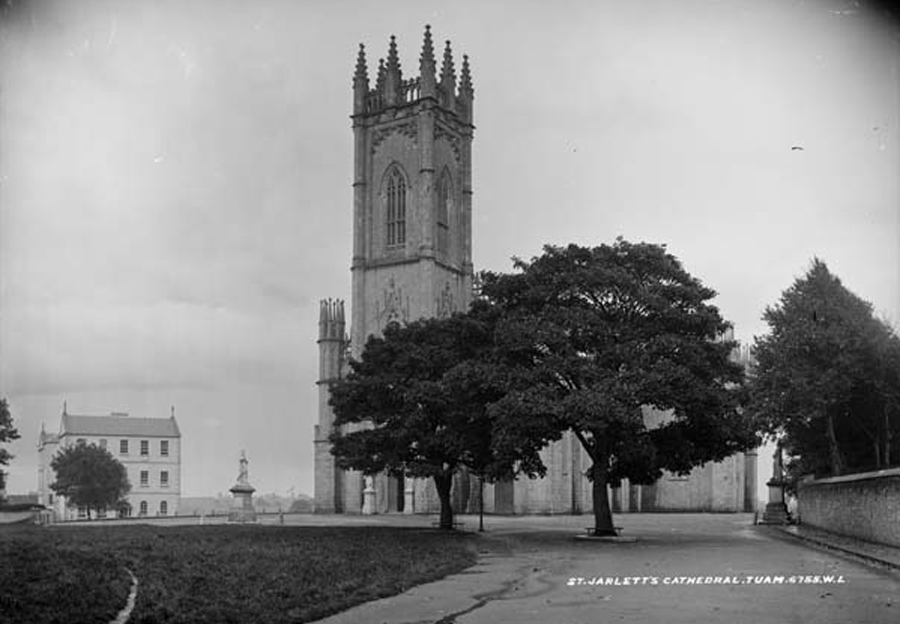‘There is enough of Irish blood shed’ – archbishop calls for end to ‘no glory’ war
Tuam, 31 July 1922 – The Archbishop of Tuam, Thomas Gilmartin, has appealed to the young men engaged in fighting against the National Army to lay down their arms and pursue a ‘constitutional way of ending this conflict. There is already enough of Irish blood shed. There is enough of destruction done in the country.’
Dr Gilmartin made these comments in the course of a sermon delivered in Tuam Cathedral on 23 July. He added that there could be ‘no glory’ in this current war and that its continuance would ‘leave Ireland a pallid skeleton awaiting death with no pitying eyes to weep for the disasters brought upon us, not by our foes, but by ourselves.’
These views are being echoed in churches and cathedrals across the country.

Military operations in Dublin, June – July 1922. Four Courts from Bridge St (Image: National Library of Ireland)
Speaking at a mass in Castlebar, the local parish priest, Archdeacon Fallon, condemned those who were not prepared to accept the results of the recent general election and urged his parishioners to help the National Army stand up to what he described as the ‘revolver bullies’.
In the east of the country, Rev. J. McKeone, speaking at St Patrick’s Church in Dundalk referred back to a statement issued by the cardinal, the archbishops and bishops of Ireland in May 1922 – prior to the recent eruption of violence – in which they drew attention to the potential dangers of a civil war in terms of the destruction it would inflict on life and property, on the social order, and the damage it would do to national dignity.
Fr McKeone said that he had received a letter from Cardinal Logue, in which the cardinal expressed his dismay at the actions of the ‘rascals and robbers’ in Dundalk who were bringing ‘a respectable Catholic town into disgrace’.
The message from the Catholic hierarchy was clear according to Fr McKeone: ‘The Bishops of Ireland had set forth that those in revolt who took the lives of their fellow-beings in Ireland were guilty of murder.’
[Editor's note: This is an article from Century Ireland, a fortnightly online newspaper, written from the perspective of a journalist 100 years ago, based on news reports of the time.]





















